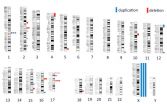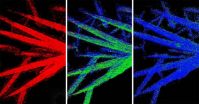(Press-News.org) A new study by UC San Francisco has found that statins can help prevent disease in older adults but must be weighed against potentially serious side effects.
Amid a projected cost of almost $900 billion for cardiovascular disease over the next decade in the U.S., statins are used by nearly half the elderly population in the nation. But in spite of the widespread use, there has been little systematic scrutiny of the potential risks of the drugs in older adults and whether those side effects could offset cardiovascular and other health benefits.
For the statin study, the researchers used a computer simulation model that explored whether statins should be routinely administered to adults 75 or older to prevent heart disease.
They found a tenuous balance: on the one hand, the results showed "tremendous" potential health benefits to be gained including far fewer heart attacks. On the other hand, potential side effects that may have particular consequences in the elderly - including muscle pain and weakness or mild declines in cognitive function - could offset those gains.
The study will be published April 21, 2015 in Annals of Internal Medicine.
"There's been a lot of uncertainty over the use of statins in older adults," said senior author Kirsten Bibbins-Domingo, PhD, MD, a professor of medicine, epidemiology and biostatistics at UCSF. She is also director of the UCSF Center for Vulnerable Populations at San Francisco General Hospital and Trauma Center.
"Prior studies have favored statin use because of the clear benefits to the heart and because serious side effects are rare," said Bibbins-Domingo. "Unfortunately, we don't have enough studies in older adults, and as a result don't know enough about how common or how severe the side effects are. Our study showed that in older adults, even small increases in functional limitations and mild cognitive impairments from statin use could result in net harm."
An estimated 19 million adults 75 to 94 years old were living in the U.S., according to 2014 statistics, and of those 30 percent were diagnosed with cardiovascular disease, reported the study. Under current rates, older adults are projected to account for 2.5 million myocardial infarctions and 3.1 million deaths related to coronary heart disease over the next decade.
Statins are widely used to combat cardiovascular disease. Before patients embark on using them, typically they discuss the potential benefits and risks with their physicians. To help guide those decisions, researchers in the statin study sought to provide more precise and reliable data on the balance between benefits and harms.
They focused on two side effects that are particularly important to geriatric populations: functional limitations due to muscle pain and weakness and mild cognitive impairment. "Both of these conditions are prevalent in older adults and can have substantial impact on quality of life and ability to live independently," the authors wrote.
The study was based on a simulation of all U.S. adults 75 to 94 years old, from 2014 through 2023. The researchers simulated the estimated impact of statin use for primary prevention, modeling the use of statins in all older adults without known heart disease.
In their findings, the authors estimated that if all adults in the U.S. 75 to 93 years old without cardiovascular disease were to take statins over the next decade, 105,000 heart attacks and 68,000 deaths would be prevented. Because statins are available as generics and relatively inexpensive, treating all older adults without heart disease would be cost effective, the author reported.
However, the cardiovascular benefits and cost effectiveness would be offset with even a modest increased risk - by 10 to 30 percent - of cognitive impairments or functional limitations, caution the researchers.
They call for additional research to quantify both the potential benefits and harms of statin use in older adults.
INFORMATION:
The study was funded by the American Heart Association Western States Affiliate (11CRP7210088) and the National Institute on Aging (K01AG039387).
Co-authors from UCSF are Mark J. Pletcher, MD, MPH, associate professor in residence, and Divya Thekkethala, BS, of the UCSF Department of Epidemiology & Biostatistics; Pamela G. Coxson, PhD, senior statistician David Guzman, MS, and postdoctoral fellow David Heller, MD, MPH, of the UCSF Department of Medicine. The first author is Michelle Odden, Phd, an assistant professor of epidemiology at Oregon State University. Other co-authors are Divya Thekkethala, BS, of Oregon State University, and Lee Goldman, MD, MPH, of Columbia University in York.
UCSF is the nation's leading university exclusively focused on health. Now celebrating the 150th anniversary of its founding as a medical college, UCSF is dedicated to transforming health worldwide through advanced biomedical research, graduate-level education in the life sciences and health professions, and excellence in patient care. It includes top-ranked graduate schools of dentistry, medicine, nursing and pharmacy; a graduate division with world-renowned programs in the biological sciences, a preeminent biomedical research enterprise and top-tier hospitals, UCSF Medical Center and UCSF Benioff Children's Hospitals. Please visit http://www.ucsf.edu.
WASHINGTON -- Results from a second comprehensive analysis of mammography screening, this time using data from digital mammography, confirms findings from a 2009 analysis of film mammography: biennial (every two years) screening offers a favorable balance of benefits to harm for women ages 50 to 74 who have an average risk of developing breast cancer.
A technical report of the analysis is posted on the US Preventive Services Task Force's website and is cited as one piece of evidence for its 2015 draft recommendations for breast cancer screening with mammography.
The ...
New Haven, Conn. -- Researchers at Yale and the VA Pittsburgh Healthcare System compared the number of drinks that men with HIV infection, versus those without it, needed to get a buzz. They found that HIV-infected men were more sensitive to the effects of alcohol than uninfected men.
The study published April 17 in the journal AIDS and Behavior.
Researchers know that HIV and alcohol can make for a dangerous mix. "Alcohol makes it more likely you're going to get HIV due to risky sexual behavior," said Dr. Amy C. Justice, professor of medicine and public health at Yale. ...
DALLAS, April 20, 2015 -- For the first time, the American Heart Association has issued recommendations for healthcare providers treating people older than 40 with congenital heart disease.
"People born with congenital heart disease are living longer and fuller lives than ever before, and there are now more adults than children with congenital heart disease," said Ami Bhatt, M.D., lead author of the new scientific statement published in the American Heart Association journal Circulation.
"These patients often have a sense that their heart has been 'fixed' and they don't ...
WASHINGTON, DC - In order to help doctors treat the millions of people who experience their first seizure each year, the American Academy of Neurology and the American Epilepsy Society have released a new guideline on how to treat a first seizure. The guideline is published in the April 21, 2015, print issue of Neurology®, the medical journal of the American Academy of Neurology (AAN), and will be presented at the AAN Annual Meeting in Washington, DC, April 18-25, 2015, which is the world's largest gathering of neurologists.
One in 10 people worldwide have a first ...
WASHINGTON, DC, APRIL 20, 2015--A new guideline released today by the American Academy of Neurology (AAN) and the American Epilepsy Society (AES) found that administering an antiepileptic medication immediately after a first seizure reduces the risk of having another seizure within two years. The guideline, authored by Allan Krumholz, MD, a professor of neurology at the University of Maryland School of Medicine and physician at the Maryland Epilepsy Center at the University of Maryland Medical Center, is the first to address treatment of a first seizure in adults. A previous ...
NEW YORK, NY (April 20, 2015) -- A significant proportion of children with chronic kidney disease (CKD) have unsuspected chromosomal imbalances, including DNA anomalies that have been linked to neurocognitive disorders, according to a new Columbia University Medical Center (CUMC) study. The findings suggest that routine genetic screening of children with CKD could lead to earlier and more precise diagnoses, as well as to more personalized monitoring, prevention, and treatment. Details of the study were published today in the online issue of the Journal of Clinical investigation.
"With ...
Every year, more than 120 million prescriptions are written worldwide for thiazide drugs, a group of salt-lowering medicines used to treat high blood pressure. These drugs are often work very well, and over decades have saved hundreds of thousands of lives.
But in some patients, thiazides are not effective; in others they lower blood pressure for a while and then stop working. The reasons for this have remained a mystery. Now, a new study by researchers at the University of Maryland School of Medicine (UM SOM) has revealed a key mechanism for this failure.
Paul Welling, ...
Following a first seizure, physicians should discuss with patients whether it is appropriate to prescribe medication to reduce risk of another seizure, according to new guidelines released at the American Academy of Neurology meeting.
The guidelines, which were a collaboration of authors at several North American medical institutions including NYU Langone Medical Center, found adults who experience a first seizure may have risk of another seizure that's greatest within the first two years. Adults with prior neurological trauma, abnormalities on EEGs and imaging may be ...
Access to high-quality medicine is a basic human right, but over four billion people live in countries where many medications are substandard or fake. Marya Lieberman of the Department of Chemistry and Biochemistry at the University of Notre Dame and Abigail Weaver a postdoctoral associate in the University's Department of Civil Engineering and Environmental and Earth Sciences took up the challenge of how people in developing countries could detect low quality antimalarial drugs without expensive equipment and without handling dangerous chemicals.
The solution they ...
MADISON, Wis. -- In a move that could improve the energy storage of everything from portable electronics to electric microgrids, University of Wisconsin-Madison and Brookhaven National Laboratory researchers have developed a novel X-ray imaging technique to visualize and study the electrochemical reactions in lithium-ion rechargeable batteries containing a new type of material, iron fluoride.
"Iron fluoride has the potential to triple the amount of energy a conventional lithium-ion battery can store," says Song Jin, a UW-Madison professor of chemistry and Wisconsin Energy ...

